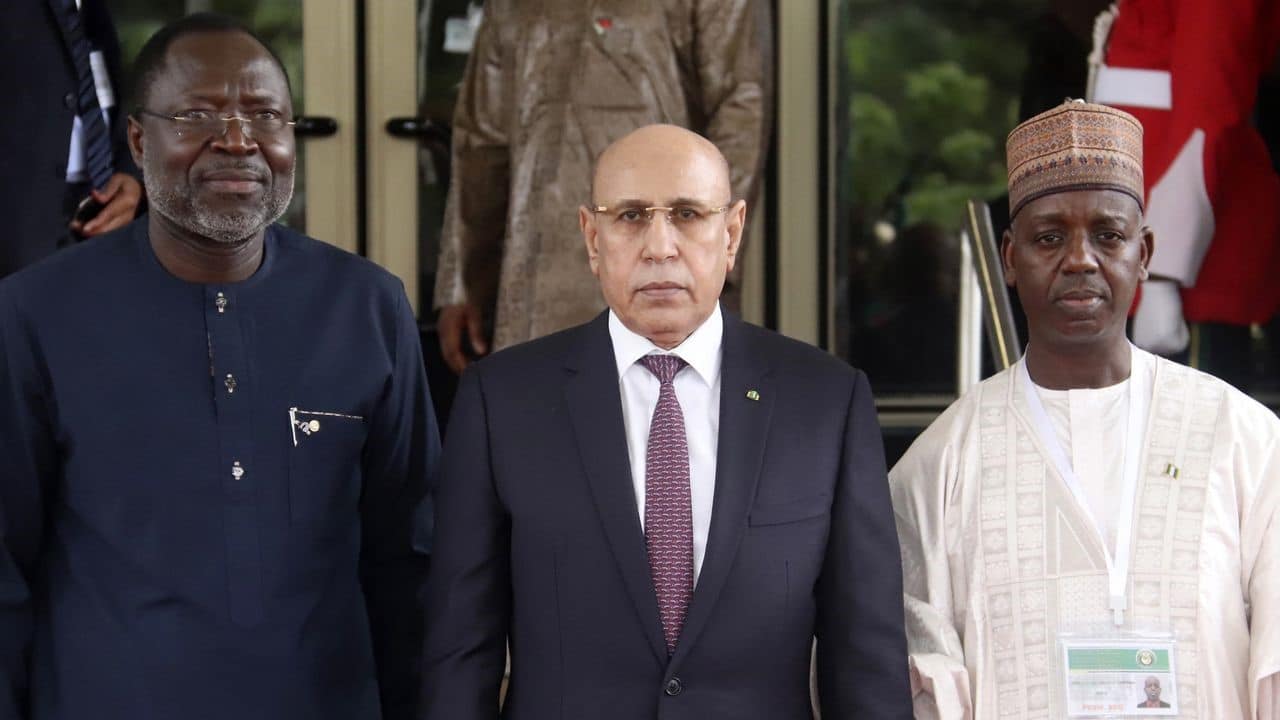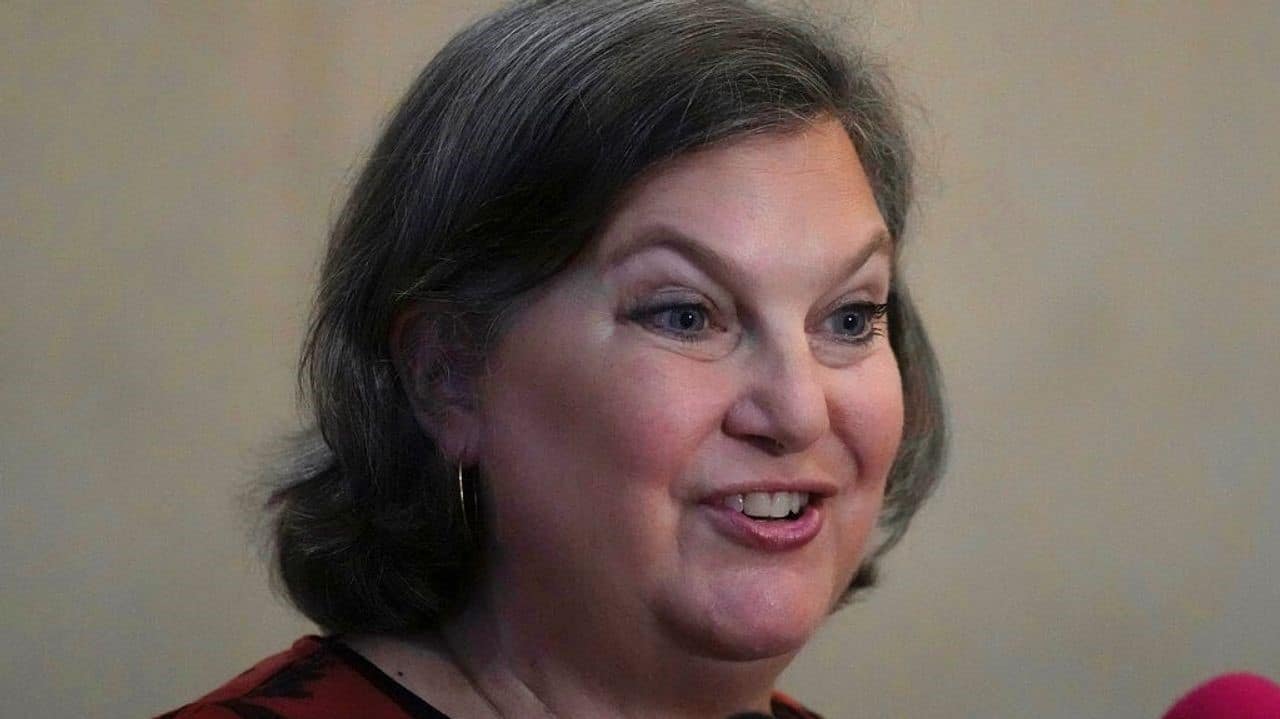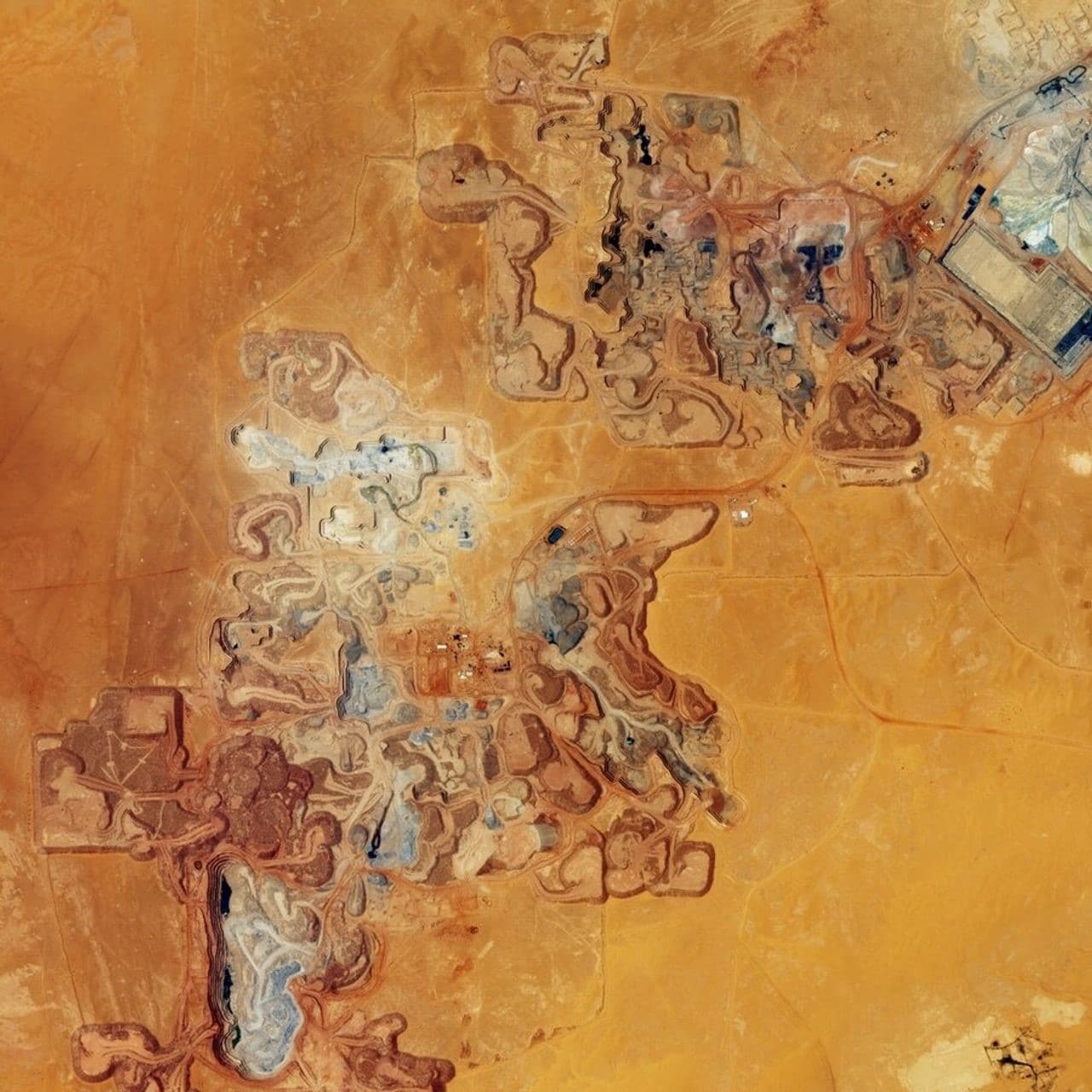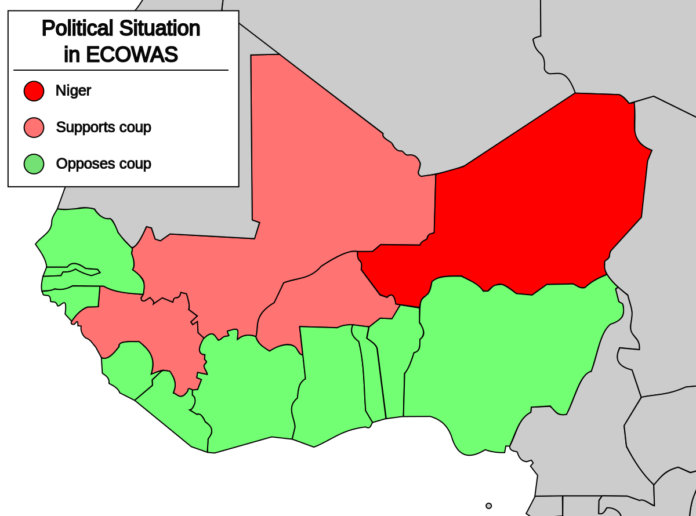The Niger crisis and the global threat of war
Clip source: The Niger crisis and the global threat of war – World Socialist Web Site
Thomas Scripps
August 2023
The impoverished West African state of Niger is the latest flashpoint in the struggle by the imperialist powers for a re-division of the world. The issues involved in the NATO-Russia war in Ukraine—a fight for territory, strategic resources and regime change—are erupting all over the globe, in China and Taiwan, and now in the Sahel region of Africa.
Though stalled for the moment, what would be a devastating war led by the most powerful country in the region, Nigeria, to oust the coup leaders in Niger and reinstate President Mohamed Bazoum is under active preparation. At a summit of the Economic Community of West African States (ECOWAS) in the Nigerian capital Abuja Thursday, leaders agreed to activate a standby military force and threatened that “no option had been taken off the table.”’

Omar Touray, left, president of the ECOWAS Commission, welcomes Mauritanian President Mohamed Ould El-Ghazouani , center, for the ECOWAS meeting in Abuja, Nigeria. Thursday, August 10, 2023. [AP Photo/Gbemiga Olamikan]
They agreed a new round of sanctions on Niger, which has been plunged into blackouts by electricity cut-offs and seen food prices rise 60 percent amid a blockade and the freezing of assets and trade.
A conflict would draw in the entire region. Senegal, Benin and the Ivory Coast have already pledged to send troops to aid Nigeria. Mali, Burkina Faso and Guinea have declared for the military coup leaders in Niger.
Behind the proposed ECOWAS action stand the imperialist powers, who are intent on blocking Russia and China from further penetrating a continent whose strategic significance is growing rapidly. The long-term decline of France’s economic position in its former West African colonies—culminating in the last three years in a dramatic collapse of its military presence in Mali, Burkina Faso and now perhaps Niger—has thrown open the Sahel region to intense geopolitical competition.
Bazoum was considered an important Western ally. The US and the European powers have responded to the coup against him by cutting aid to Niger supposedly provided on “humanitarian” grounds—on which it relies for 40 percent of its annual government budget. They are determined to secure their interests whatever the cost.
Speaking Tuesday after “difficult” talks with the coup leaders, US Acting Deputy Secretary of State Victoria Nuland—veteran of the US-backed 2014 coup in Ukraine— threatened, “We’ll be watching the situation, but we understand our legal responsibilities and I explained those very clearly to the guys who were responsible for this and that it is not our desire to go there, but they may push us to that point.”

US Under Secretary of State for Political Affairs Victoria Nuland in Colombo, Sri Lanka, Wednesday, February 1, 2023. [AP Photo/Eranga Jayawardena]
Caution over a proposed military intervention by ECOWAS has centered on concerns that such action has not been properly prepared and would spark mass opposition throughout the region. A misjudged war could explode the social powder keg in Nigeria, where the US and Britain are heavily invested politically and economically.
A great deal is at stake. The United States currently has 1,500 soldiers of its 6,500strong declared African deployment stationed in Niger across two bases—one of which is the regional hub for drone missions. France has 1,100 troops in the country, Italy 300 and Germany around 100.
Niger is a major uranium producer, providing a quarter of Europe’s supply. It is due to start exporting oil and plays a central role in policing migration out of Africa to Europe. It has become a frontline state in a battle for economic and military preeminence in West Africa and across the whole continent.

A uranium mine in Niger. [Photo by Korea Open Government License/Korea Aerospace Research Institute]
Africa is home to an estimated 30 percent of the world’s mineral wealth, including 90 percent of its chromium and platinum—crucial to the green energy transition. Another such mineral is cobalt, of which 70 percent of the world’s supply is produced in the Democratic Republic of Congo. By the end of the century, Africa could also account for a fifth of the world’s lithium supply.
The continent also produces 65 percent of the world’s diamonds and is home to 40 percent of its gold reserves, 12 percent of its oil and 8 percent of its natural gas, while
Morocco alone is home to 75 percent of the world’s phosphate rock, crucial for fertilizer.
In terms of markets, Africa’s consumer expenditure is on track to grow from $1.4 trillion in 2015 to $2.5 trillion in 2030.
The US and Europe are concerned not to let Niger be another loss to the claims made by China and Russia on these riches and opportunities.
Russia’s Wagner group (headed by Yevgeny Prigozhin) is operating in Mali, to Niger’s immediate West, Libya, to its North East, the Central African Republic (CAR) and Sudan— providing armed forces for their governments in conflicts with local rebel groups. In the CAR and Sudan, Wagner also runs private gold and diamond mines.
Russian President Vladimir Putin inaugurated a Russia-Africa summit in 2019 promising to help push back against “an array of Western countries [that] are resorting to pressure, intimidation and blackmail of sovereign African governments.” The second, far less well attended, summit held under conditions of anti-Russian sanctions and the war in Ukraine, took place last month, where a special effort was made to court Burkina Faso’s “interim leader” Colonel Ibrahim Traoré.
Russia has sought to leverage its relatively meagre resources to gain allies and the occasional lucrative venture, but China is throwing enormous economic weight behind securing control of Africa’s resources markets. It has controlling stakes in large swathes of the continent’s mining industry—including the bulk of uranium mines in Niger, plus its oil industry—forming part of a total FDI (foreign direct investment) stock of $43.4 billion in 2020, a 100-fold increase in 17 years.
China is Africa’s largest bilateral lender, loaning $153 billion in the two decades to 2019, and its second largest trade partner after the European Union, bigger than any other single country.
Both Russia and China are also major arms suppliers to sub-Saharan Africa, accounting for 26 and 18 percent of sales respectively in the last five years, above third-place France at 8 percent, and the US at 5 percent.
In 2019, US Africa Command (AFRICOM) launched a five-year plan to “deter” what it called “Chinese and Russian malign action.” Former head of AFRICOM, Marine Corps Gen. Thomas Waldhauser, told Congress that year that both were after “access and influence to our detriment” and that, within the decade, China could gain the capability to inhibit US military access and operations. The policy has remained unchanged since Trump’s Republicans were replaced by the Democrats under Biden.
Colin P. Clarke, former RAND analyst and current Director of Research at the global intelligence and security consultancy The Soufan Group, bluntly explained to Newsweek the implications of the Nigerien situation.
“This could take on the dimensions of a regional proxy war, with Western countries supporting ECOWAS and Russia supporting Niger—and Burkina Faso and Mali, if they joined in—with muscle from the Wagner Group.
“What’s happening in the Sahel is not a sideshow to great power competition, it is great power competition. The events unfolding are not doing so in a vacuum. The U.S., France, China, and Russia each have their own vested interests in Sahelian countries.”
Workers and the rural poor in Niger and West Africa are confronted with the catastrophe warned of by the International Committee of the Fourth International (ICFI) at its 1991 Berlin Conference of Workers against Imperialist War and Colonialism, held in response to the Gulf War.
The manifesto announcing that conference explained: “This ongoing and de facto partition of Iraq signals the start of a new division of the world by the imperialists. The colonies of yesterday are again to be subjugated. The conquests and annexations which, according to the opportunist apologists of imperialism, belonged to a bygone era are once again on the order of the day.”
Based on Trotsky’s theory of permanent revolution, the statement warned that the struggle “against imperialist oppression cannot be waged successfully as long as the working class remains under the political domination of any wing of the national bourgeoisie.” It is inseparable from a fight against national ruling classes which have overseen the continued grueling exploitation of the African masses, kept in power by militaries trained and funded by the imperialists.
Niger must above all serve as a warning to the working class all over the world of the urgent need to oppose the predatory war aims of the imperialist powers. As the ICFI and the International Youth and Students for Social Equality insisted in calling for the building of a worldwide movement against the NATO-Russia war:
“The war in Ukraine is not an episode that will soon be resolved and followed by a return to ‘normalcy.’ It is the beginning of a violent eruption of a global crisis that can be resolved only in one of two ways. The capitalist solution leads to nuclear war, though the word ‘solution’ can hardly be rationally applied to what would amount to planetary suicide. Thus, the only viable response, from the standpoint of securing the future of mankind, is the world socialist revolution.”
❖






